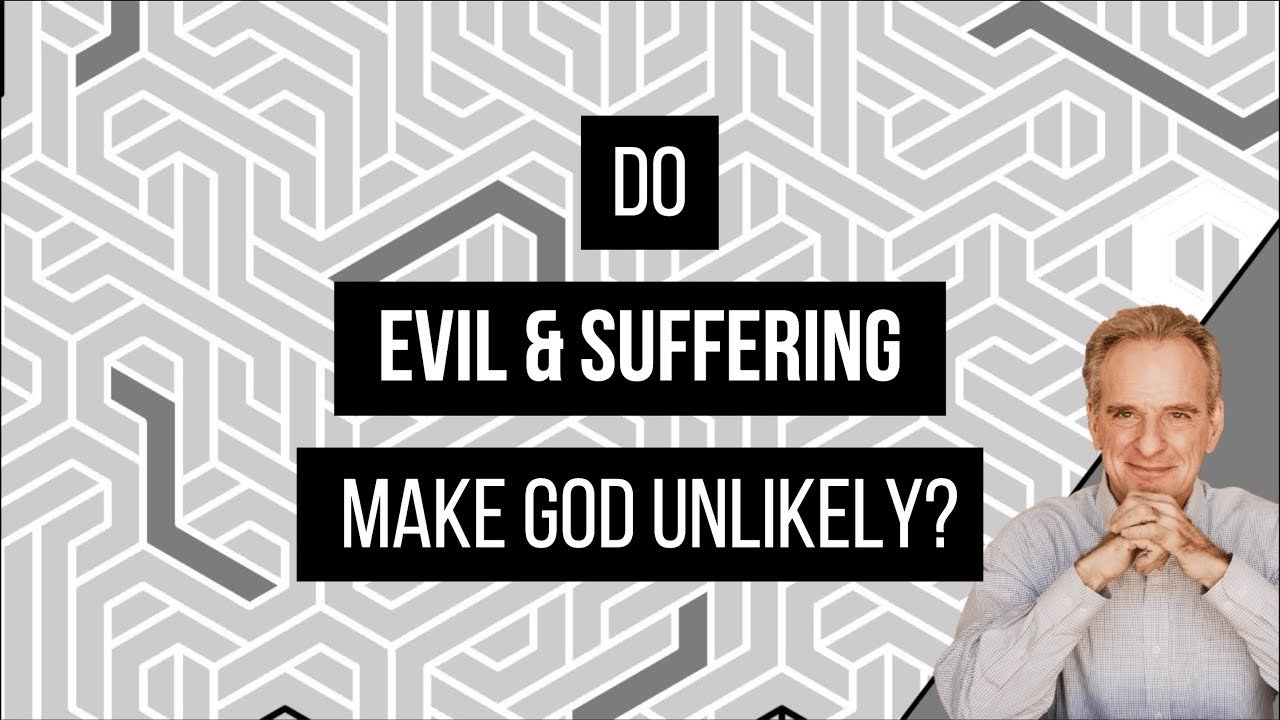[Anderson] Evil and suffering is a big one, and I’d be interested in your perspectives on that. You hear people say that particularly the Abrahamic God, who’s all-powerful and all-knowing and all good, and you’ve just made a reference to that yourself, the locus of all good things,
[yes] now there’s the atheistic argument from evil. And it basically runs that if there is such a God, and look I don’t want to sound unsympathetic about this; it’s a big challenge evil is a big problem, just as I described exists, then, there’d be no evil or or suffering. But
There is a lot of evil and suffering in the world, therefore there can’t be a God, or certainly not a Christian God. So where do philosophers in general come out on that question of suffering, and where do you land? [Craig] Well historically for centuries atheistic philosophers have defended
The view that the existence of the suffering and evil in the world is logically incompatible with the existence of God. And now on the contemporary scene, this has really changed; virtually no one defends the logical version of the problem of evil anymore, and the reason is that it lays upon
The shoulders of the atheist a burden of proof that is so heavy that no one has been able to sustain it. The atheist would have to prove that there is no logically possible reason that God could have for permitting the evil and suffering in the world,
And no one can prove such a thing. So those who do defend the problem of evil today have retreated from the logical version of the problem to the so-called probabilistic version of the problem, where the claim is that given the evil and suffering in the world, it’s improbable that
God exists, if not impossible. And the difficulty with this version of the problem is that it makes probability judgments that are simply beyond our ability. There is no basis for thinking that if God has morally sufficient reasons for permitting the evil and suffering in the world
That these should be evident to me. For example, every event that occurs in human history sends a ripple effect through history, such that God’s morally sufficient reasons for permitting it might not emerge until centuries from now, perhaps in another country. An illustration of this would
Be the so-called butterfly effect in contemporary physics. It’s been shown that the fluttering of a butterfly’s wings on a twig in West Africa can set in motion forces that will eventually produce a hurricane over the Atlantic Ocean, and yet no one watching that little butterfly on the branch
Could possibly predict such an outcome. These kinds of probability judgments are just beyond our capacity. And similarly, when we see some instance of suffering and evil in the world, we are simply not in a position to say with any sort of confidence God probably doesn’t have
A morally sufficient reason for permitting that to occur. A second point that needs to be made here is that when one’s talking about probabilities, then you’ve also got to consider on the other side of the scale, what is the probability that God does exist? And here I would offer
A multiple considerations that I think make it quite probable that there is in fact a transcendent creator and designer of the universe, despite any improbability that the suffering in the world might throw upon the existence of God. [Anderson] Interestingly, I’ve never
Forgotten the story, a true story, about a young university student in Scotland not long after well probably I suspect during the Depression years, things were grim, and he knocked on the door, of a small cottage that was opened, there was a returned serviceman from the first World War,
And when he realized the young man wanted to talk to him about God he said go away, he said I was in the trenches in France and I stopped believing in God when I saw all that evil. And the young man said to him I respect that that must have been terrible,
And I certainly won’t pester you, but can I just make the observation that I wonder if I’d been there I might not have stopped believing in man rather than stop believing in God. And the old man looked at him, tears welled up near his eyes,
And he said you better come in; we need to talk about this. It’s an interesting take on evil. I sometimes think that one of our problems is we’re not self-reflective enough. [Craig] Yes one of the major developments in philosophy with respect to this problem is the so-called free will defense,
In which philosophers I think have been able to show that it’s neither improbable nor impossible that every world that God would create that would involve this much good, this much moral goodness, would also involve this much moral evil freely perpetrated by human free agents,
So that ultimately the blame lies at man’s threshold and not at God’s. oh
#Problem #Evil #God




